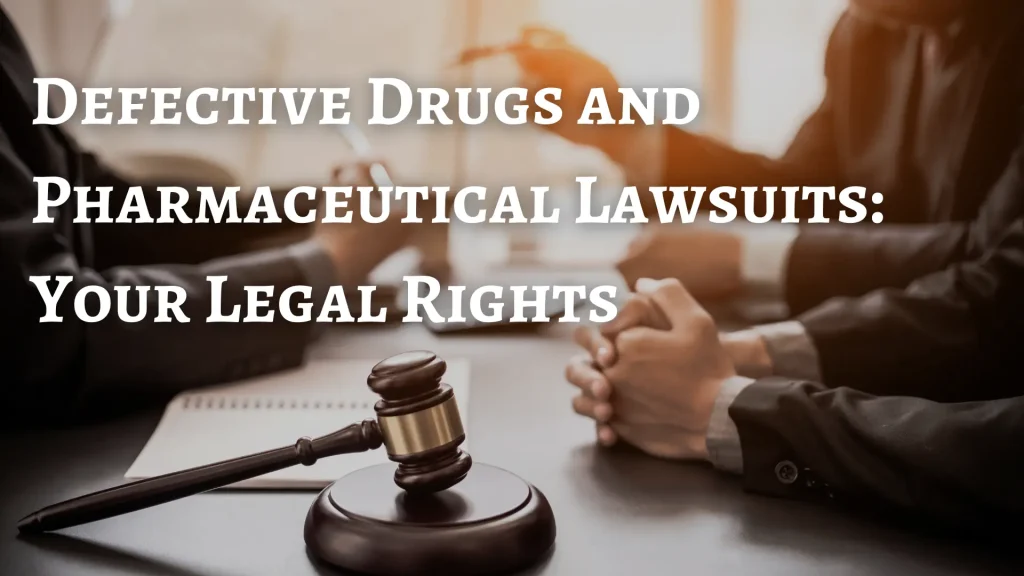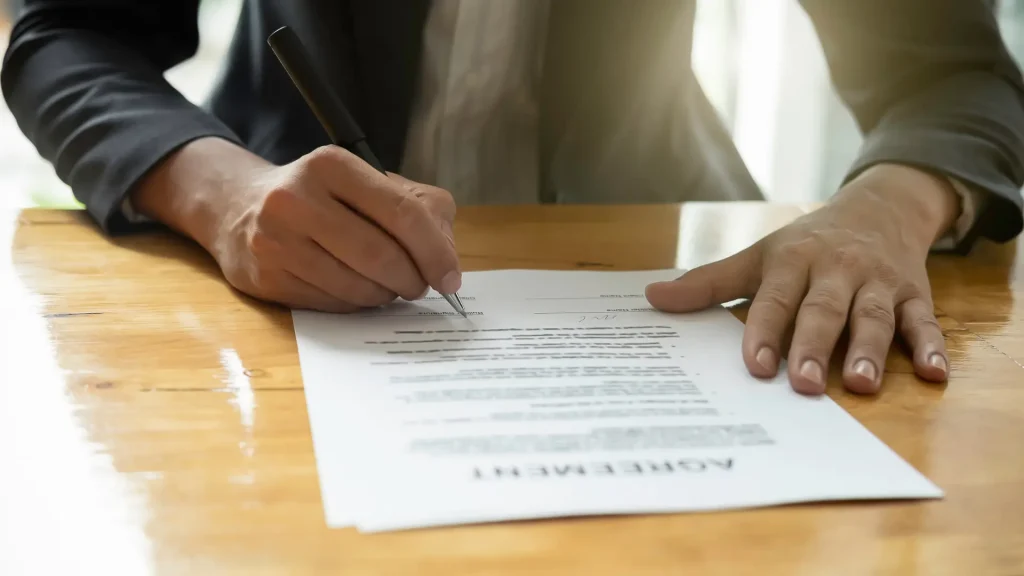 Pharmaceutical companies must follow strict safety rules when developing and marketing prescription drugs. If they don’t test their products properly or hide risks, they are responsible for the harm their defective drugs cause. These are not small mistakes—they are serious safety violations that ruin lives. Filing a defective drug lawsuit can help victims seek justice and compensation.
Pharmaceutical companies must follow strict safety rules when developing and marketing prescription drugs. If they don’t test their products properly or hide risks, they are responsible for the harm their defective drugs cause. These are not small mistakes—they are serious safety violations that ruin lives. Filing a defective drug lawsuit can help victims seek justice and compensation.
If you suffered an injury or illness from a dangerous medication, you may have grounds for a defective drug lawsuit. A Panama City personal injury attorney can explain your options and help you take action against the drug company.
What Constitutes a Defective Drug?
Drug companies have a legal duty to ensure the safety of their products before they reach the public. They must conduct proper testing and follow strict guidelines. If they discover any risks associated with using the drug, they must share that information immediately. Hiding or ignoring these dangers puts lives at risk.
A drug is defective when it causes harm that could or should have been prevented. Drug defects can happen in a few ways. Sometimes, the drug has a dangerous design that was never safe to begin with. Other times, a manufacturing error leads to contaminated drugs.
In many cases, the problem lies in the drug’s labeling. The company may not have warned doctors and patients about serious side effects or risks. Many medications come with risks, but patients must understand these risks before taking drugs, or else the manufacturer has liability.
Who Can File a Defective Drug Lawsuit?
You may have grounds for a lawsuit if you suffered an injury, illness, or worse symptoms from a defective drug. (“Grounds” is a legal term referring to justification for a lawsuit.) You must show that you used the drug as directed and suffered injuries or other harm. You also need to show that the drug was defective and that the defect caused your injury or illness.
You don’t have to be the one who bought or used the drug to have a case. If a family member suffered injuries or got sick after taking a medication, you may be able to bring a claim on their behalf. Similarly, you may have grounds for a wrongful death lawsuit if a family member died because of a defective drug. In Florida, surviving spouses, children, or parents often have the right to pursue these legal actions.
Common Types of Defective Drug Cases
Pursuing a type of defective drug lawsuit against a pharmaceutical company exists in three ways. They are:
- Design defect claims – A design defect means the drug is dangerous even when made correctly. These drugs can harm patients even when taken exactly as prescribed. The risks are often present from the beginning but may go unnoticed during testing.
- Manufacturing defect claims — Manufacturing defects happen when something goes wrong while making a drug. The original design may be safe, but a mistake during production makes the drug dangerous. These defects could involve contamination, incorrect ingredients, or improper labeling. Even a small factory error can cause serious harm. These defects may affect just one batch or an entire product line. A drugmaker’s failure to catch a defective product can lead to serious harm and liability.
- Failure-to-warn claims – Drug companies must warn doctors and patients about known risks and side effects. When they don’t, people can suffer serious injuries. These are called failure-to-warn claims, also known as labeling defects. A company may downplay dangers, leave out vital safety information, or fail to update warnings when new risks arise. Doctors and patients can’t make informed choices without clear instructions or warnings.
What To Do if You Suspect You Sustained Injuries from a Defective Drug
You must act fast if you think a defective drug caused your illness or injury. First, stop using the medication and see a doctor. A doctor can treat your condition and document your injuries or illness.
Keep all records of your previous and current treatments, including prescriptions, the drug’s packaging, and pharmacy receipts. These documents are critical evidence for your defective drug claim.
Next, write down when you started the drug, how long you took it, and what symptoms you experienced. Include any hospital visits or missed work.
Then, speak with a personal injury lawyer who handles defective drug cases. Don’t talk to the drug company or sign anything before getting legal advice. A Panama City defective drug attorney can review your situation and explain your legal options.
Compensation in Defective Drug Lawsuits
One crucial reason to get legal help for your defective drug lawsuit is that a lawyer can help you seek compensation for all the harm you’ve suffered. Defective drugs don’t just cause physical harm, after all. Your injuries or a long-term illness can severely hamper your daily life. With a lawyer’s help, your case could include compensation for:
- Lost income
- Reduced future earnings
- Past and future medical expenses
- Pain and suffering
- Emotional distress
Deadline to File a Defective Drug Lawsuit
 The deadline to file a personal injury lawsuit in Florida is two years from the date of your injury. However, injuries from defective drugs sometimes take months or years to show. If your injuries took a while to manifest, you have two years from when you discovered or reasonably should have discovered them to file a lawsuit.
The deadline to file a personal injury lawsuit in Florida is two years from the date of your injury. However, injuries from defective drugs sometimes take months or years to show. If your injuries took a while to manifest, you have two years from when you discovered or reasonably should have discovered them to file a lawsuit.
A statute of repose in product liability cases sets a final deadline for taking legal action. (Defective drug lawsuits fall under product liability law.) Under this law, you have “12 years after product delivery to its first purchaser” to file a lawsuit. Call a lawyer right away so they can help you preserve your right to compensation.
Contact a Panama City Defective Drug Lawyer Now
The Bruner Law Firm doesn’t back down from pharmaceutical companies and can help you pursue fair compensation for your injuries. Call (850) 243-2222 now or complete our contact form for a free consultation with a Panama City pharmaceutical injury lawyer. Our team looks forward to meeting you, listening to your story, helping you, and determining how we can help you pursue fair compensation for your suffering.







